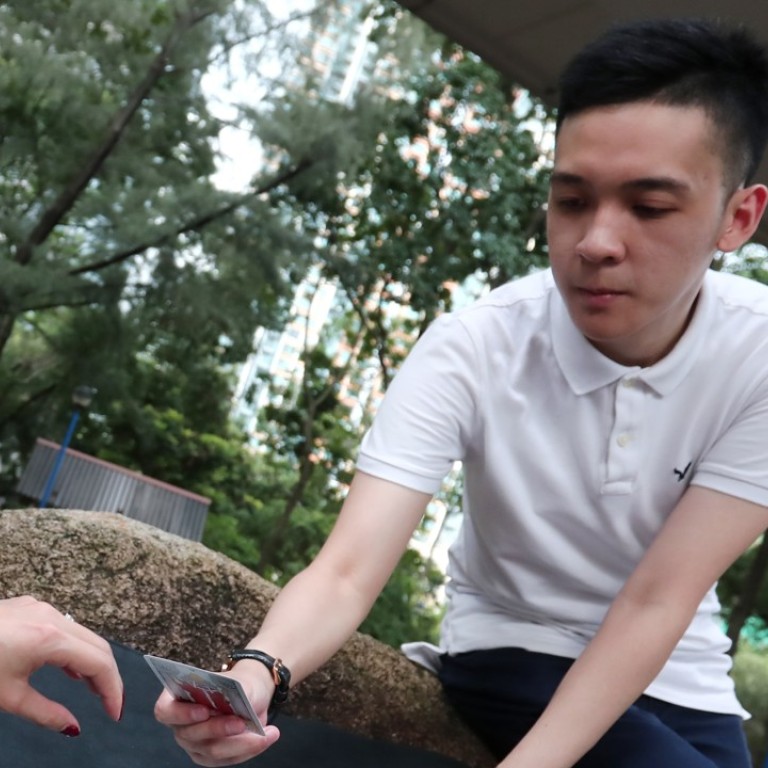
Feng shui, fortune-tellers and zodiac signs: young Hongkongers seek solace in superstition
Searching for answers in tarot cards and palm reading becoming popular among generation not necessarily tied to any religion
With a stack of tarot cards in his hands, Alanstair Lau Siu-yu takes a deep breath and asks the young woman sitting opposite him to shuffle them.
The pair are in a cafe in Tsuen Wan and the woman has recently left a long-term relationship. She has come to see the 26-year-old to ask for guidance on what to do next. She hands the deck back to Lau, who pulls out a card and focuses.
Gen-Z Chinese buying ‘wellness kettles’ to make soup as healthy living trend takes off
“You need to take the time to allow yourself to heal,” he tells her. “It may not be the smartest move to jump into another relationship just yet.”
The woman paid HK$50 (US$6) per question for Lau’s advice. And she is not alone among members of her generation who are increasingly turning to the city’s fortune-tellers for help with everyday problems.
Experts in Hong Kong say this shift towards traditional practices often considered mysterious and occult is a global phenomenon among a generation that views authority and belief very differently to their parents.
A tradition that thrives in a new age
“A lot of young people feel that it’s getting harder to survive in Hong Kong,” says Joseph Wong Ka-lok, who has been telling fortunes in Wong Tai Sin for 26 years.
He has seen a surge in the number of young Hongkongers – university students in particular – coming to him in recent years, in a sharp contrast to when he started his business. Then, university-educated people usually rejected the practice and regarded fortune-tellers as frauds.
Don’t try new tricks this Year of the Dog, Hong Kong fortune-tellers say
Things have changed.
His young customers often cite increasing pressure at work, or the difficulty of finding a job, as reasons for seeking him out.
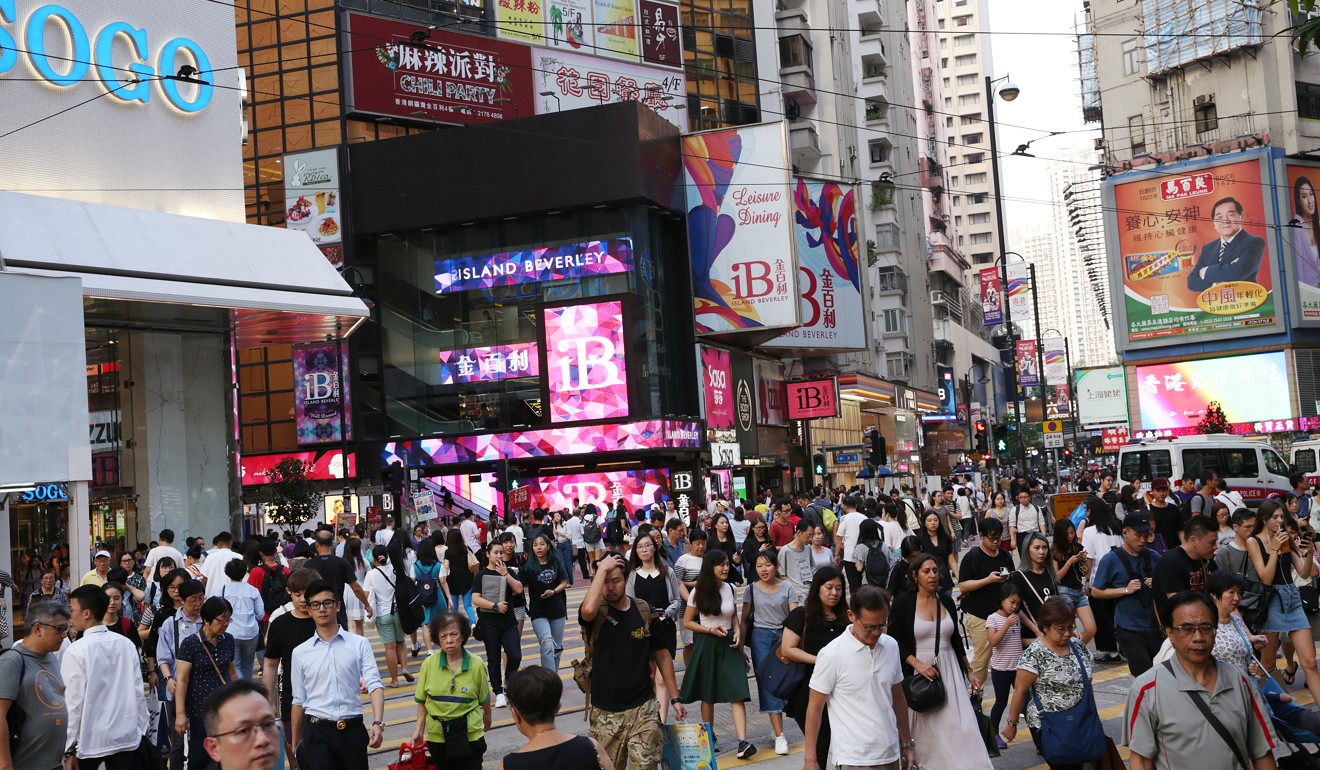
Wong, who is in his 60s, says compared to his generation, young people have higher expectations when it comes to salary and promotion opportunities.
“Very often they are not satisfied with the status quo,” he explains. “They don’t understand why they are not being properly rewarded for their hard work. That’s why they come to me for explanations.”
Pregnant women can contact me on WhatsApp and I will name their to-be-born babies online
He now sees more than 200 customers a month, many of whom are students, and employs all sorts of divination methods, including traditional feng shui consultation and palm readings, as well as tarot, which he says is growing in popularity among young people.
Wong Chun-fu, another fortune-teller who operates in both Wong Tai Sin and Temple Street in Jordan, has observed the same trend and has adapted to the new wave of popular interest in the digital era.
In fact, the rise of social media has, overall, given the fortune-telling profession a considerable boost, the 59-year-old says.
After telling fortunes for more than 30 years, he has started using online messaging tools to serve those who are unwilling to go to his stall in person.
To Cheng Wai-yin, 34, who lost his parents in a car accident when he was in his 20s, says visiting a fortune-teller on Temple Street has become a regular occurrence for him. Paying around HK$300 per reading, he now uses the service through messaging too, to save time on a visit.
Young minds in search of answers
“Before I sought the advice of my fortune-teller I was clueless about making choices,” Cheng says. “I had no one to ask and had no direction.” He considered asking his friends for help, before realising they made bad choices too.
“Now I have something to follow,” he adds. “For example, if I don’t know whether I should make a move on a girl, or whether I should choose this job or that, there are rules I can follow that might bring me a higher chance of success. It’s not guaranteed to work, but it makes me feel more at ease in making those choices.”
Cheng often takes suggestions about behaviour that can improve his fortune, and at one point he was asked to wear red underwear for a week. On another occasion, Cheng was instructed to stop eating meat for a month.
Cheng also got himself a dog, which, perhaps appropriately, he named Lucky.
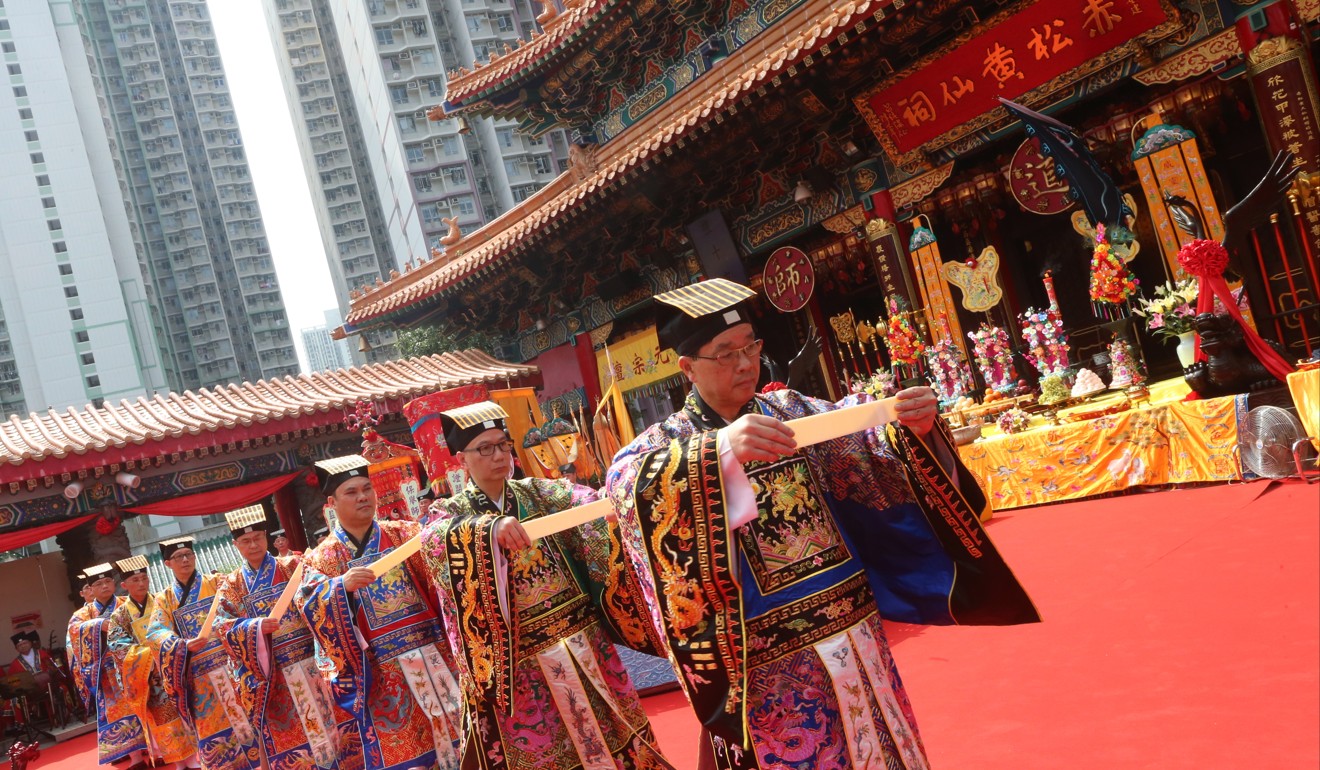
The fortune-teller also advised Cheng to look for a partner who was born in the Year of the Pig.
At the same time, as a firm believer in the Western astrological tradition, he believes, as a Taurus, he ought to find a Capricorn woman with whom he ought to be compatible.
After three years of following these principles, Cheng met a girl who fulfilled all his astrological criteria – a Capricorn woman, born in the Year of the Pig. They moved in together, and soon got engaged.
“I thought we’d be the perfect match,” Cheng recalls. But it wasn’t to be.
“We fought constantly. She was always jealous. She threw things.”
During a particularly passionate exchange, Cheng says, he had to call police. Two years into the relationship, they broke up.
“After this, I began to wonder whether it was so important to find a girl with the right sign,” Cheng admits. “It is not a guarantee that a relationship will work.”
Chinese woman lashes out at fortune-teller when death prediction goes wrong
A new religion
The fact these practices appeal to the younger generation is far from surprising, says Professor Cecilia Chan, of the University of Hong Kong’s department of social work and social administration.
“There’s a certain proportion of young people who have a great deal of uncertainty about their future, and these systems give them reassurance,” Chan says.
Dr Paul O’Connor, research assistant professor at Lingnan University’s Department of Sociology and Social Policy, recognises this trend.
“We’ve been seeing the emergence of a subjective sense of religion or belief,” O’Connor says. “And it’s not just Hong Kong. There’s been a general worldwide trend of people moving away from structured religion.”
The city has always maintained a hybrid mix of religions and belief systems, he says.
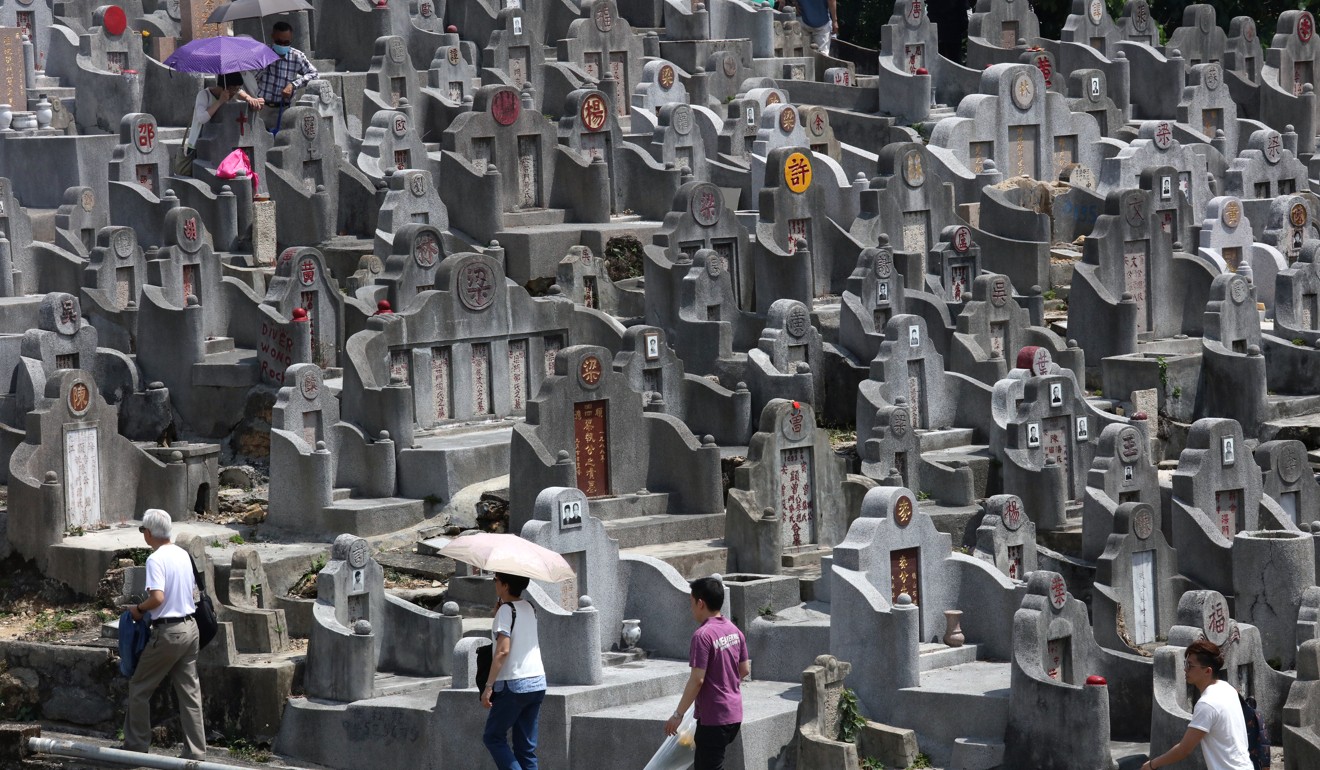
“Young people in Hong Kong aren’t necessarily into folk religion. But they carry out the rituals as part of their cultural identity. For example, they don’t necessarily view tomb sweeping [a traditional observance that is part of Ching Ming festival, which takes place in the spring] as religious – but it’s something they continue to do with their family, and they view it as part of their identity.”
In the city, you might find people who observe feng shui practice and go to church.
“Within a few steps, you might see both a Buddhist temple and a mosque,” he adds. “And those who say they believe in the Western zodiac might also take part in Chinese cultural traditions. There are few who see any contradiction in this.”
O’Connor describes a “personal spiritual architecture” in which people pick and choose elements of belief systems, as well as popular culture, to create their own form of belief.
Thanks to the internet, it’s easier than ever for young people to look for their own answers.
Neither Chan nor O’Connor see any particular cause for concern in this new-found, New-Age interest in the mystical.
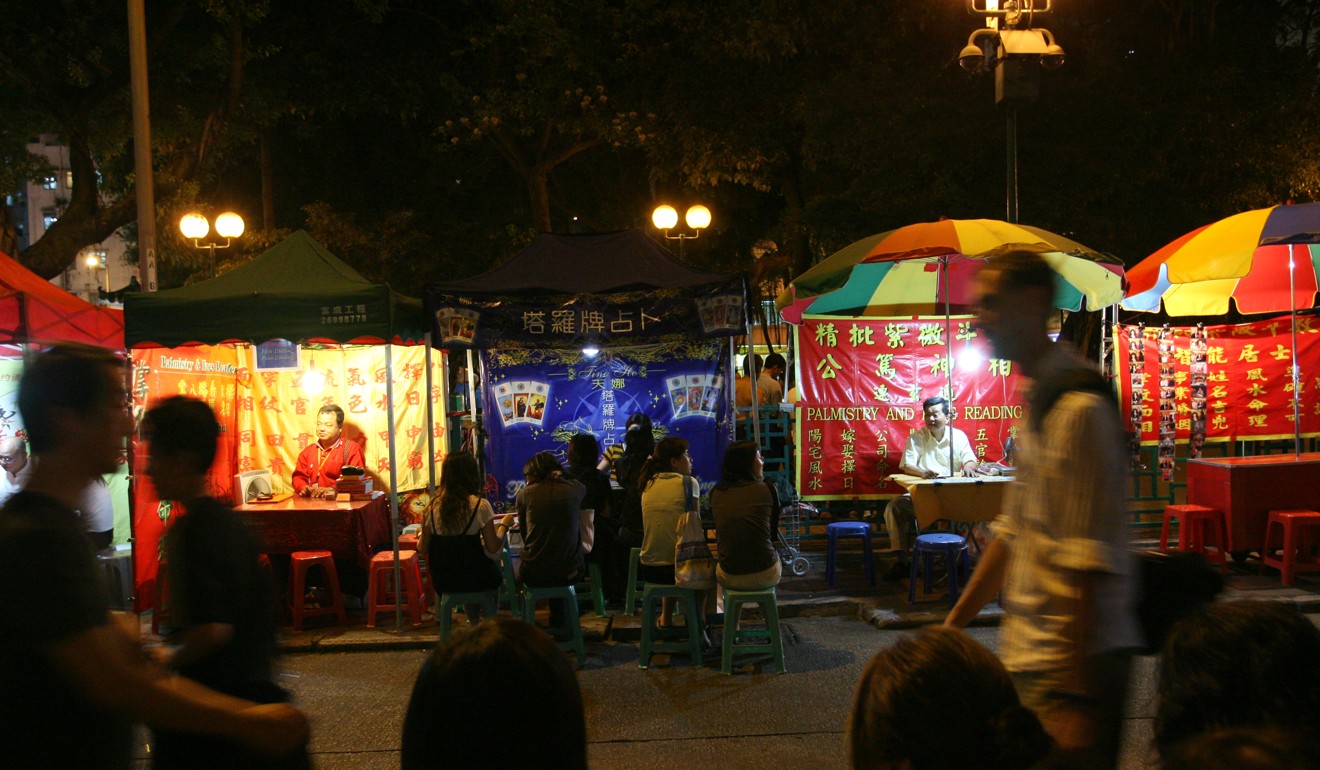
Chan points to studies that have found adherence to a belief system – no matter how personalised or abstract – can be positive for people’s psychological well-being.
Be it tarot readings, yoga, grave sweeping or witchcraft, O’Connor says people are taking elements of what gives them comfort, and building their own stories around them.
“People often recognise that these stories are made up,” he notes. “But they’re not concerned about that, it’s about the feeling of constructing your own identity.”
Many Hongkongers believe there are specific do’s and dont’s that can help generate – or fend off – bad luck. Here are some of the most popular.
Rule of fours
You probably know the number four is taboo in conventional Chinese culture. In Cantonese, the number – sei – sounds like “death”, so anything that includes the figure four is to be avoided. You can still find buildings that omit a fourth, a 14th, or even a 44th floor.
Love and eight
As much as the number four is unlucky, the figure eight is practically a talisman of good luck in Chinese culture. Vehicle licence plates and phone numbers that include the curvaceous eight are highly sought after, and gamblers at the races love to place bets on horses bestowed with it.
Point not taken
Hongkongers tend not to give or receive knives or other sharp objects. These are considered to represent severing relationships.
Clocking out
It’s considered very bad luck to give or receive a clock. In Cantonese, “to give a clock” – song zung – means “to prepare for the end”.
Rihanna says no
Don’t give an umbrella as a gift. The word for umbrella – zhe – is a homophone for “separate”.
Bad pears
The word “pear” in Cantonese – lei – is a homophone for “depart” or “leave”.
Well red
Conversely, red is the most auspicious colour in Chinese culture, and it’s employed liberally throughout pretty much all festivities and celebrations.



